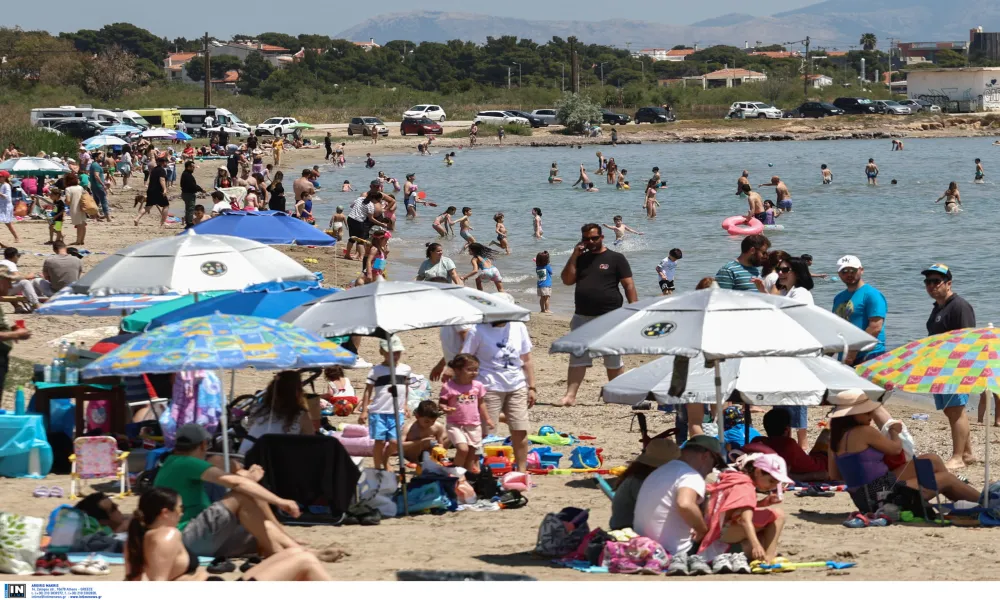By Andreas Athanasiou
Ιt is now clear. Drownings in Cyprus can no longer be considered as random incidents. Not with 495 deaths since 2005.
According to the relevant numbers made available to 'Politis' by the Causes of Death Monitoring Archive Unit at the Health Ministry, 7 out of ten drownings involve men.
The fewest fatal incidents over the past couple of decades were recorded in 2015-just 12-with 2018 being the worst year with a total of 38 drownings. In 2008, 2014 and 2017, more than 30 people drowned and even 2020, in the midst of the pandemic and resulting movement restrictions, 16 people drowned.
The Elderly
People over 65 are the majority of people who lose their lives while swimming. Out of the 495 deaths, 97 were between 65 and 74, 60 were aged 75-79 and 38, over eighty.
Βut even the under 30s fall victim to such incidents. 53 people aged 20-34 have drowned since 2004, and in addition, nine teenagers and 6 children aged 5 to 9. It is worth noting that half the deaths involved non-permanent residents of Cyprus, while 85 people drowned on a Sunday, the busiest of the week, when families and tourists flock to the beach,
Weaknesses and shortcomings
'In most of the cases, people die where there are no lifeguards, either because there is no watchtower, the tower is not manned or their shift is over', said Polys Pallikaros, President of the National Lifeguards Federation. He referred to a recent incident in Limassol, where a swimmer died at 0945 and the lifeguard reported for duty at 1000.
In addition, as he noted, only 20% of watchtowers are equipped with rescue platform jet skis, the best means of rescue for Cyprus sea. 'The equipment needs to be up to standard', Pallikaros stressed, underlining the fact that the rescue jet skis are specially designed with protective equipment that secure the safety of the victim.
Much better news on defibrilators, with every lifeguard watchtower now equipped with one.
Lifeguard daily challenges
The profession is facing major issues that have not been met with solutions over the past few decades. Lifeguards are employed for only a limited amount of time, three to six months, not exactly a motive to continue this line of work. 'When you don't have a permanent job, the bank will not even approve a loan', the federation President told 'Politis'. He stressed the need to open up more eight month positions as well as hire permanent staff.
Even more to the point, in spite of the fact that lifeguards are trained in risk assessment, they are rarely called upon to express an opinion on the safety of beaches or granting licenses to beach bars on several dangerous beaches.
But its not just about lifeguards. Polys Pallikaros notes the importance of educating people from a young age. The federation has been implementing a special programme over the past four years, visiting schools and teaching pupils the basics in safety and first aid.
'Children can pass on this knowledge to adults', he added, referring to a recent incident where a father reported that his son would not let him swim after having a beer. It is also significant to inform tourists and other visitors, but the programme of handing out fliers to tourists in three languages, has been discontinued.
'The goal is to bring it back', he said.
Winter swimmers are also a challenge, as there are not enough beaches to accommodate them. There is only one such organised area in Pafos, but three are needed, with two in the free Famagusta area, with the goal being to double those.
A good lifeguard is a prevention lifeguard. 'If we only have 12-15 rescues a month', it means that there is something wrong with people following the rules'.
91 lifeguard watchtowers operate across Cyprus, with 107 permanent lifeguards and 270 seasonal, serving 3 to 11 months. Their shifts start at 0630 and finish at 2000, depending on the popularity of the beach and the danger of the area. More are needed in Limassol and Pafos.
The lifeguards cost in 2025 is 9.35 million euro, half of it state funded, with the rest being paid by local authorities. Half a million will be needed in the next three years to upgrade or replace watchtowers.
Lifeguards were called in 471 cases over the past five years. 48 proved to be fatal, but most were not the result of drowning.
All competent authorities admit that more coordination and resources are needed. This is indeed a matter of life or death. In minutes.
